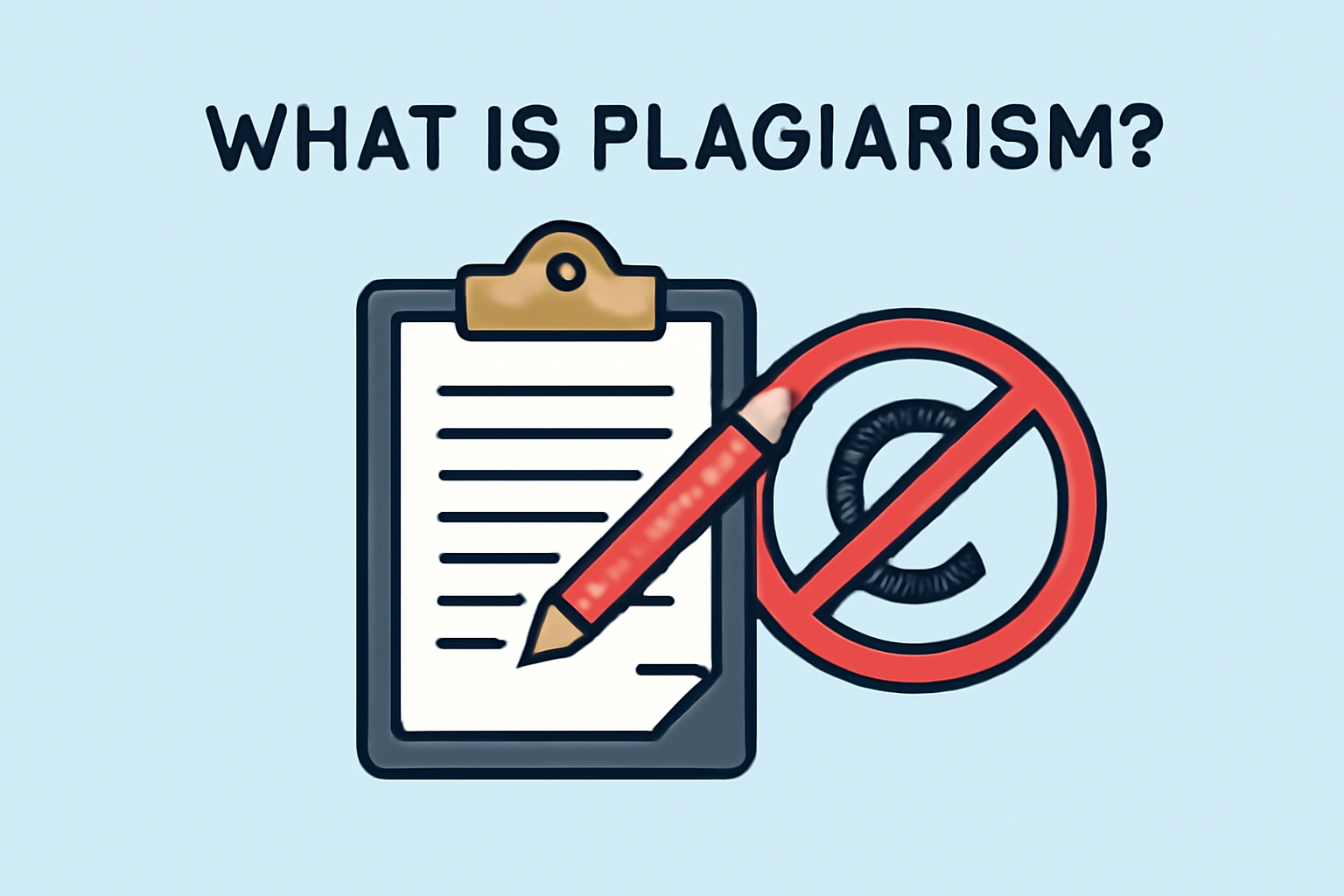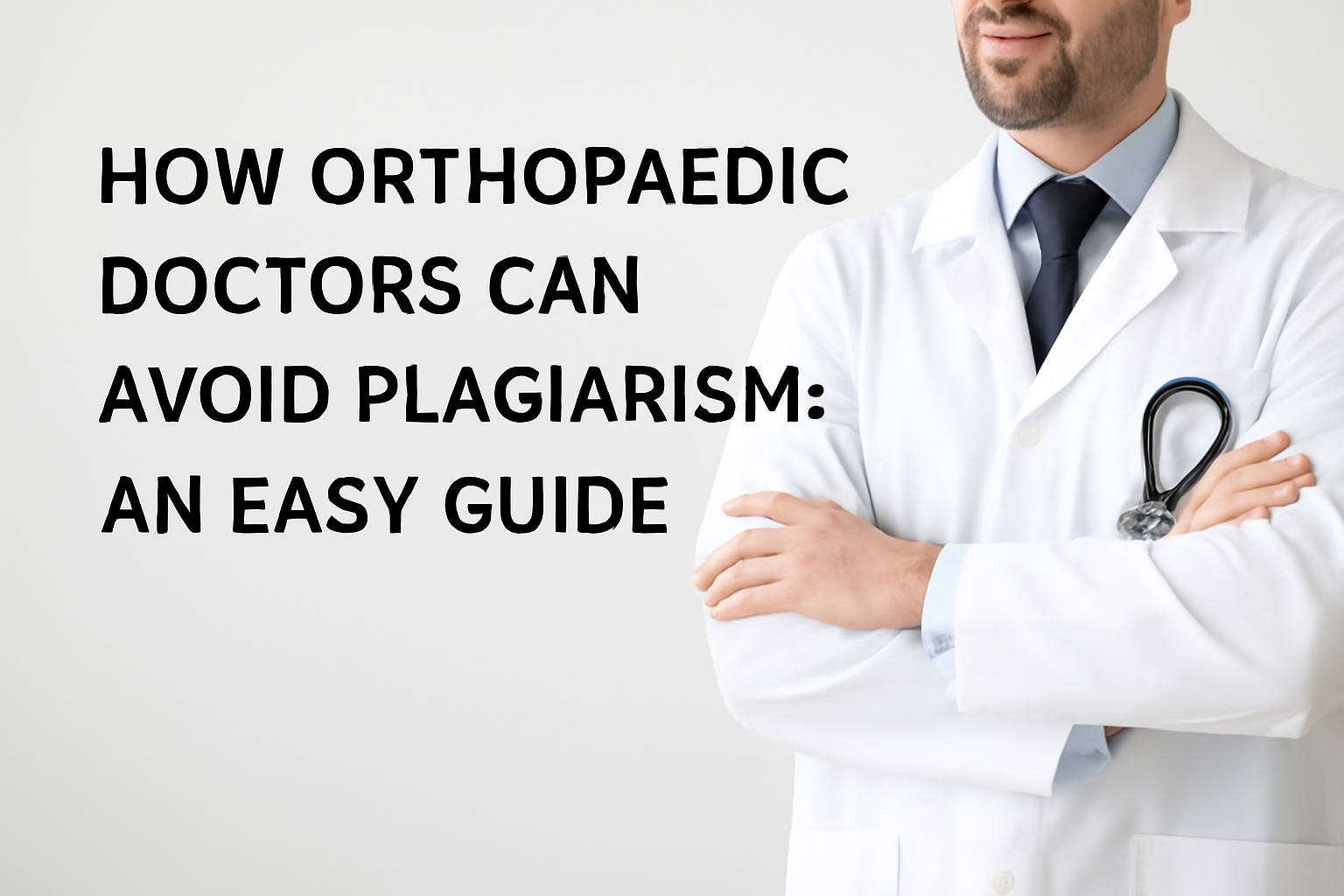How Orthopaedic Doctors Can Avoid Plagiarism | Simple Guide
How Orthopaedic Doctors Can Avoid Plagiarism: An Easy Guide
By Dilbag Singh, Team Red Paper™ | 05 August 2025
Orthopaedic doctors perform crucial research to improve patient care and advance treatment techniques. However, ensuring originality in their academic writing is essential. Plagiarism—intentional or accidental—can severely affect credibility and publication opportunities.
What is Plagiarism?

Plagiarism involves using someone else's words, ideas, or data without proper credit. Even accidental similarities can lead to paper rejection or serious reputation loss. Plagiarism is not just a student issue—it affects researchers, medical professionals, and even experienced orthopaedic surgeons. In the era of digital publishing, maintaining research originality is both a moral obligation and a professional necessity. A study titled “Scientific misconduct: Plagiarism and non-compliance with disclosure of interest: Retrospective analysis of 1 year's submissions to Orthopaedics & Traumatology: Surgery & Research” highlights the growing concern of ethical violations in academic publishing, especially within orthopaedics. This guide aims to help orthopaedic doctors understand the seriousness of plagiarism, its consequences, and simple, effective ways to avoid it.
Real-Life Story: Importance of Original Research
Dr. Rahul Verma, a respected orthopaedic surgeon, submitted a research paper to the International Journal of Orthopaedics Sciences with high expectations. However, his manuscript was rejected due to accidental plagiarism—some paraphrased sections closely resembled original sources, and data citations were incomplete. Shocked and disappointed, Dr. Verma turned to the Red Paper Plagiarism Checker. The tool flagged problematic sections and offered clear, contextual feedback. He revised the paper thoroughly, corrected citations, and ensured all content was original and ethically written. Upon resubmission, his paper was accepted with appreciation for its clarity and academic integrity. Dr. Verma now shares his story to guide others.
“Plagiarism doesn’t always stem from intention,” says Dr. Verma. “Sometimes, it’s a byproduct of oversight. But it’s our responsibility to catch it before it damages our credibility—and tools like Red Paper make that possible.”
Easy Steps to Avoid Plagiarism

Step 1: Use a Reliable Plagiarism Checker
The first and most crucial step in avoiding academic misconduct is to use a reliable plagiarism checker such as Red Paper. This advanced tool thoroughly scans your orthopaedic manuscript to detect duplicate content, paraphrasing issues, missing citations, and even subtle similarities with published research. Whether you're writing a clinical case report, a surgical technique article, or a comprehensive literature review, running a plagiarism check before submission ensures your work meets ethical and professional standards. Plagiarism checkers help safeguard your reputation by preventing accidental overlaps that could lead to rejection or retraction. Many reputed journals, including those in orthopaedics, now require a plagiarism report along with the manuscript.
Step 2: Understand Citation Basics
Citing sources correctly is essential for maintaining research integrity in orthopaedic writing. Whenever you refer to another study, surgical technique, clinical outcome, or statistical data, you must give proper credit to the original author. Understanding basic citation styles—such as Vancouver, APA, or MLA—is critical, as each journal may have specific formatting guidelines. Improper or missing citations can lead to unintentional plagiarism, jeopardizing your publication chances.
In orthopaedic research, referencing authoritative sources enhances your credibility and allows readers to verify facts and explore further. Use reference management tools like Zotero, EndNote, or Mendeley to organize citations efficiently and format them accurately. Always cite when quoting, paraphrasing, or presenting borrowed data.
Mastering citation basics not only protects you from ethical violations but also strengthens the scholarly value of your work. Accurate referencing is a small step with a significant impact on your academic success.
Step 3: Keep Organized Research Notes
Maintaining well-organized research notes is vital for writing original and credible orthopaedic manuscripts. Disorganized data, scattered references, and vague annotations can lead to unintentional plagiarism, especially during the drafting and revision stages. Create a systematic approach—use digital folders, spreadsheets, or note-taking apps to categorize your findings, clinical observations, and source references.
Label all copied content clearly, distinguish between paraphrased and quoted material, and always record the full citation at the time of note-taking. This habit prevents citation errors and ensures easy reference when writing or editing.
Tools like Notion, Google Keep, and Evernote can help you manage research notes across devices. For orthopaedic doctors juggling multiple cases and studies, staying organized also saves time and enhances research quality.
Benefits of Using Red Paper Plagiarism Checker
1. Fast and Accurate Plagiarism Detection
Red Paper uses advanced algorithms tailored for medical and scientific writing, offering quick and precise detection of duplicate or overlapping content.
2. Detailed and Easy-to-Understand Similarity Reports
The tool generates well-structured reports with color-coded highlights, match percentages, and source breakdowns—ideal for journal compliance.
3. Confidential and Secure Document Handling
Your research stays protected. Red Paper™ ensures full data privacy with encrypted uploads and no third-party sharing.
What Happens If You Don’t Check for Plagiarism?
Ignoring plagiarism checks can lead to serious consequences, including:
❌ Rejection from Reputed Journals
Most journals now use plagiarism screening tools during review. Undetected overlap can result in immediate rejection.
❌ Damage to Academic and Professional Reputation
Even accidental plagiarism can harm your credibility as a researcher or clinician.
❌ Legal and Ethical Risks
In severe cases, copyright infringement may lead to legal action, professional suspension, or blacklisting.
Read Full Article: Plagiarism in Publications: All about Being Fair!
Helpful Resources
Created by Dilbag Singh • 05 Aug 2025




